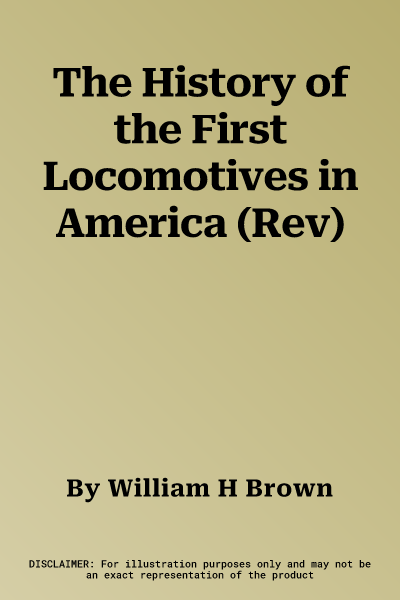The History of the First Locomotives in America by William H. Brown
provides a rare, insightful look at life for those who witnessed the
advent of the steam locomotive. Originally published in 1874, it was
written from the perspective of thoe who lived during the development of
this great mechanical blessing and evokes the spirit of the 19th century
as seldom experienced in other historical works. Narrated through
first-hand accounts from the traveler to engineer, private citizen to
political activitist this book explores the locomotive's evolutionary
development. It traces its early struggles for acceptance, problems and
advances, great debates (train vs. canal), competitions, earliest
railroads, experimental locomotives, and first trains such as the Tom
Thumb, DeWitt Clinton, and Best Friend all beautifully written in period
vernacular. One of the most delightful features of this book is its
charming artwork and illustrations. The author's artistic skills were
greatly respected, as evidenced in the compilation of extensive reviews
at the end of the book. Best known for his style of profile cutting
called portraiture (accomplished by cutting out black paper with
scissors) and widely praised, he received accolades from such renowned
luminaries as Daniel Webster, Henry Clay, John C. Calhoun as well as
other members of Congress and the Cabinet. The book is a must have in
any historian's library, whether novice or seasoned professor, and a
wonderful book for the railroad historian, researcher, history lover and
student of American culture.

